The second edition of ThePrint’s Democracy Wall at Bangalore’s Jain University reminds us that we are now in need of crafting free spaces of debate in an era of censorship, hyper-surveillance and intolerance.
Democracy Wall moved to Bengaluru for its second edition, and our host was a top class—and very, very sporty—private university, Jain University. The hall was full, students enthusiastic, and the best thing was the energy of the student volunteers.
The connect with the fundamental idea of free speech was immediate and passionate. Our favourite moment of the day was when a public disagreement between two students over what feminism meant caught everyone’s attention. Standing up from his seat to take the mic, a student ‘dared’ say out loud, “No, I think you’re wrong.”
The audience applauded, some even hooted. The use of the word dared is intentional here, because if the opportunity to speak freely without consequence elicits such an enthusiastic response, it implies that it has become a luxury we must appreciate.
The second edition of ThePrint’s Democracy Wall at Jain University reminds us that we are now in need of crafting free spaces of debate in an era of censorship, hyper-surveillance and intolerance. The controversial has become taboo, and this free speech campus initiative is a step towards reclaiming the conversation for the youth.
The aim is simple – to create empowered and better-informed citizens of tomorrow by actively engaging with them on issues of governance, politics and society. To achieve this, we create a platform of open dialogue between students from India’s top universities and prominent thought-leaders and icons from different fields.
On 28 February, actor Huma Qureshi, Congress leader Sachin Pilot, activist-rapper Sofia Ashraf, IPS officer D. Roopa, civil liberties lawyer Manasa Venkatraman, political commentator and “constitutor” (because he does the most wonderful, live tuitions on understanding the Constitution) Meghnad, and comedian Aravind S.A. interacted with students for a day of no-holds-barred discussion.
Huma Qureshi was as bold off-screen as she is on it. She spoke strongly about society’s responsibility towards creating respectful and productive conversations. It’s about demand and supply, she said. While the field day the media had with Sridevi’s death was extremely disappointing, as viewers, it was also our responsibility to stop watching. How far should free speech go? Can it offend people? She said there should be freedom to offend, but not to hurt, and that people take offence too easily these days.
Rajasthan Congress president Sachin Pilot did not shy away from addressing the party’s reputation of keeping power ‘within the family.’
“Dynastic politics is not democratic, 88 per cent of dynasts don’t get elected,” he said, while in conversation with contributing editor Mahrukh Inayet. He was frank in his answers to students’ questions on corrupt politicians, farmer suicides, and even his own crushing loss in the 2014 general elections. He rued what he described as the current state of free speech and liberties in India.
Rapper Sophia Ashraf did what she does best – push the boundaries of free speech through performance. With a strong penchant for questioning those in power, Ashraf rose to prominence after her hit 2015 single ‘Kodaikanal Won’t’ got over 4 million views on YouTube. She was markedly self-aware and told the students that even she was once caste blind and grew up in a privileged household.
“We need to learn from our mistakes, and to do that, don’t just call out, call in,” she said.
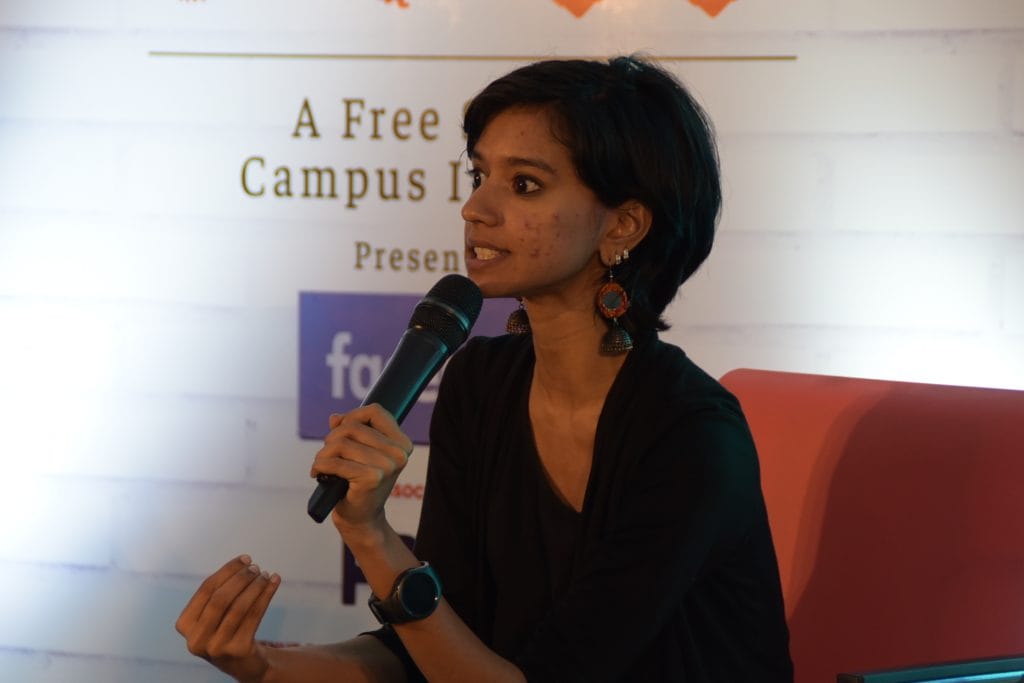
Ever engaging political commentator Meghnad reminded us that when it comes to secularism, eighth graders have it better figured out than most adults in India. His session was an enthusiastic revisiting of civics. With his characteristic humorous style and vibrant energy, a lesson in fundamental rights was anything but boring. No surprise that he is now becoming a regular presence at Democracy Wall.
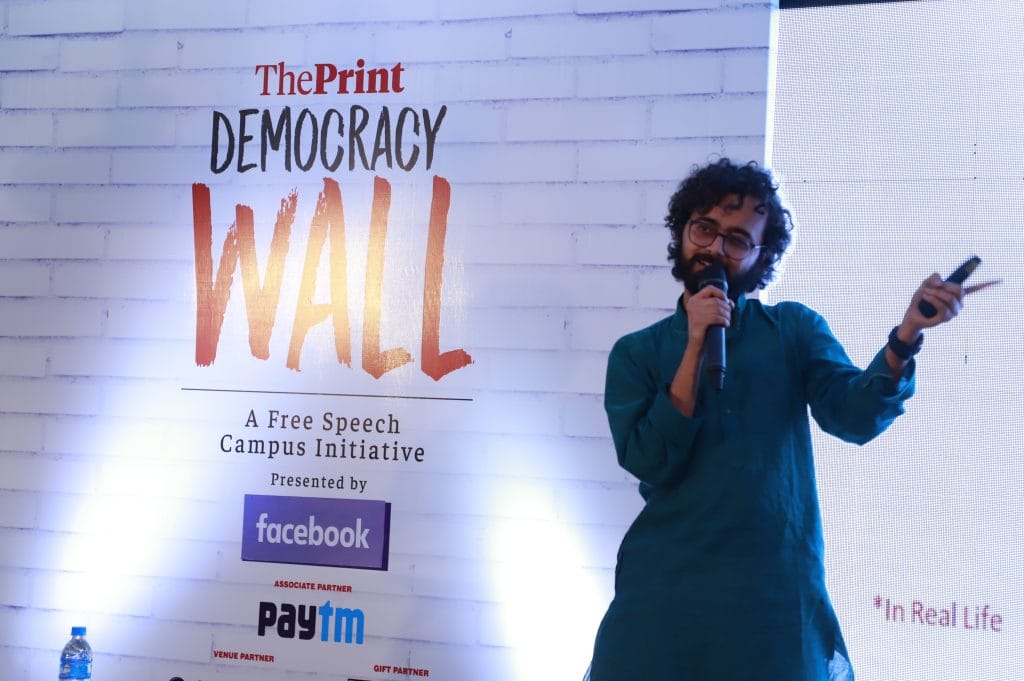
In the 21st century, in a time of data breaches and the death of privacy, lawyer and research associate Manasa Venkatraman’s session was a forewarning for what was to come. In light of the recent Facebook exposé, her conversation with ThePrint’s digital director Diksha Madhok on the country’s urgent need for privacy laws rang a bell for many. She also discussed in detail the nuances of how to protect your own privacy while using social media as well as networking and dating apps and websites.
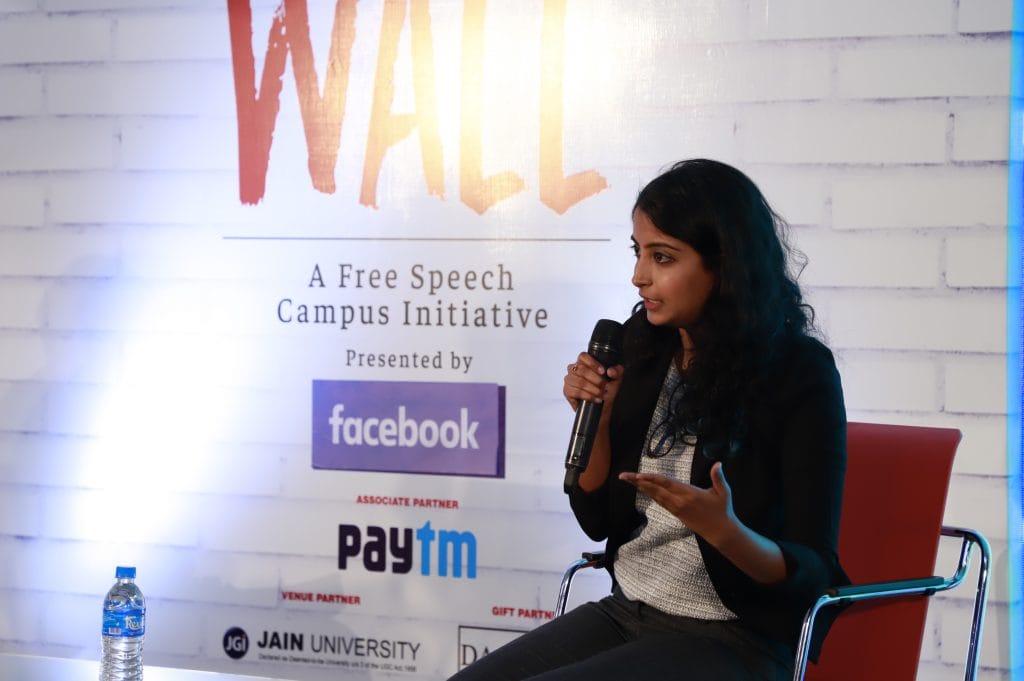
IPS officer D. Roopa, who became a free-speech icon for Karnataka after she had exposed politician Sasikala’s lavish lifestyle in a Bengaluru jail when she was briefly in-charge there, also personifies fearlessness and integrity. Students thanked her on multiple occasions, often just wanting to know how she perseveres in the line of duty despite so much resistance. The supercop has been transferred 41 times in 17 years for exposing corruption among high ranking officials. Her trick to staying afloat? Always follow the law.
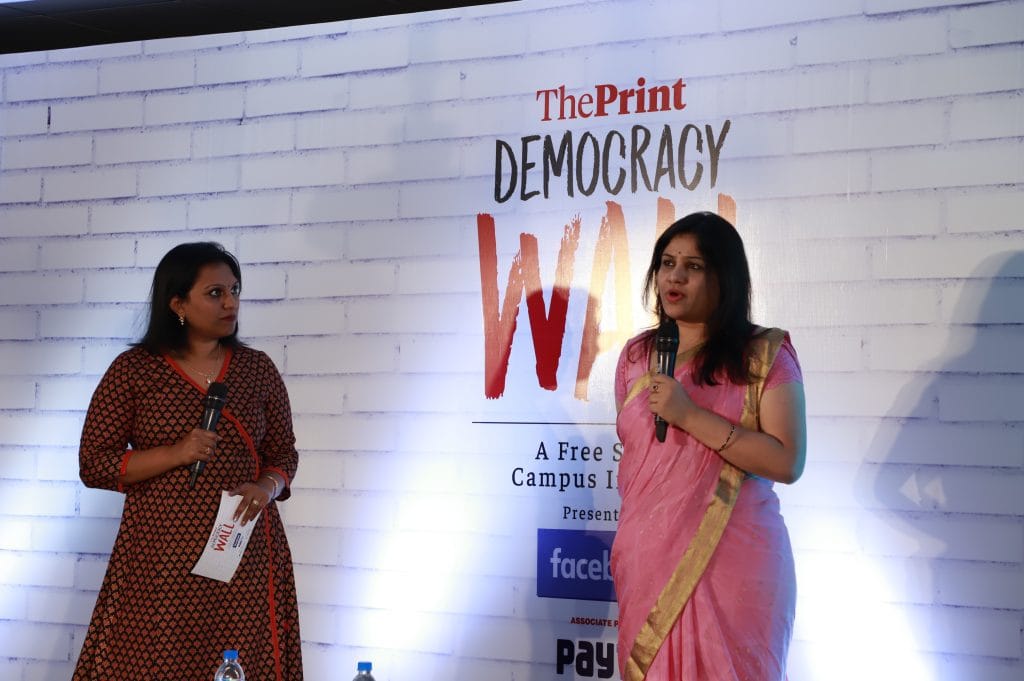
Finally, Aravind S.A., the comedic powerhouse of the south, closed the day with a tongue in cheek segment on the cultural idiosyncrasies of south India. He made fun of everything from arranged marriages to our favourite, and not-so-favourite, politicians. But most all, he made fun of himself.
Democracy Wall wouldn’t be complete without showcasing the voice and opinions of the students. As the sessions went on, a team from ThePrint went over entries for the photography, essay, and spoken word contests on topics pertaining to free speech and politics.
Vikram Velmala won the first prize in the essay contest on the topic ‘Is politics a worthwhile career for the young and idealistic?’. Mohit Baid won the second prize in the essay writing contest, and also took home the first prize in the slam poetry competition. Students were asked to write and perform poems on the theme of ‘What does politics mean to you?’.
What remained after the edition was an actual ‘Wall’ filled with uncensored notes, thoughts, and statements. After the candid sessions, a rap performance, and a comedy act, and inquisitive students, Jain University truly did resemble a working, engaging Democracy that day.



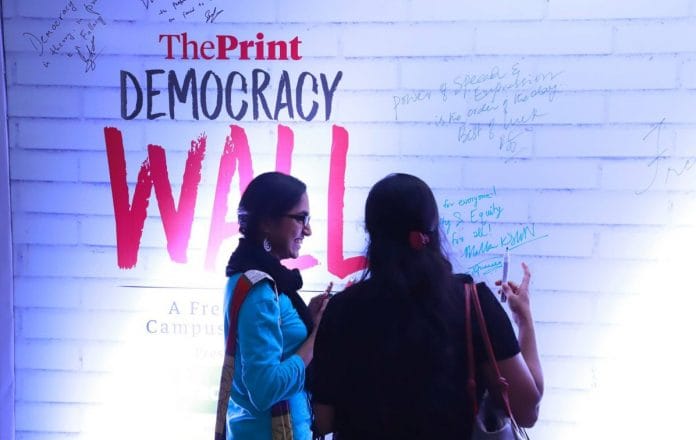



What you posted was very reasonable. But, think about this, suppose you composed a catchier title?
I am not saying your information isn’t good, however suppose you added a title that grabbed a person’s attention? I mean Democracy Wall at
Jain University reserves a right to free speech,
even if it offends you is kinda vanilla. You might glance at Yahoo’s home page and watch how they create news titles to grab people to open the links.
You might add a related video or a related pic or two to grab
readers excited about everything’ve got to say. Just my
opinion, it would make your posts a little bit more interesting.
Great initiative